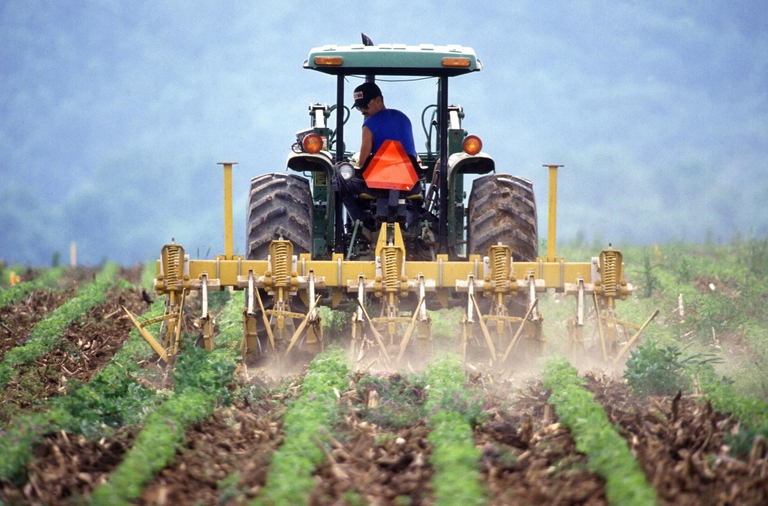
South African court dismisses a major lawsuit by 140,000 Zambian women and children against Anglo American for Kabwe lead poisoning. A setback for affected communities enduring the lasting impact of lead contamination.
Il glifosato è stato autorizzato per altri cinque anni in Europa. I paesi hanno raggiunto la maggioranza qualificata grazie (o a causa del) al cambio di rotta della Germania.
In the end they made it. The European countries of the Plants, Animals, Food and Feed Committee (PAFF) have reached an agreement and voted to renew the authorisation for glyphosate, the world’s most used herbicide and the primary ingredient in the product Roundup, synthetized by agrochemical giant Monsanto. The original proposal of the European Commission was a 10-year renewal, until 2027.
18 countries voted in favour, 9 against (including Italy and France), while only one abstained. The motion needed the approval of 55 per cent of the 28 member states representing at least 65 per cent of the population.
BM #Hendricks zur Verlängerung der Zulassung von #Glyphosat: „erfolgte ohne meine Zustimmung und entgegen der Absprache mit Bundeslandwirtschaftsminister Christian Schmidt.“ https://t.co/nLkERE2mVK
— BMUB (@bmub) 27 novembre 2017
Germany was the country that played a crucial as it allowed reaching a qualified majority after two years of debate. Germany’s vote, among other things, has divided Berlin’s government as Environment Minister Barbara Hendricks said via Twitter that the vote took place without her consent and in contrast to the deal with Agriculture Minister Christian Schmidt.
Read also: The human cost of agrotoxins. How glyphosate is killing Argentina
“Today’s vote shows that when we all want to, we are able to share and accept our collective responsibility in decision making,” said Health Commissioner Vytenis Andriukaitis.
Today’s vote shows that when we all want and put effort in it, we are able to accept and to share our collective responsibility in decision making.#glyphosate
— Vytenis Andriukaitis (@V_Andriukaitis) 27 novembre 2017
Commenting the vote, Greenpeace EU Food Policy Director Franziska Achterberg said, “The people who are supposed to protect us from dangerous pesticides have failed to do their jobs and betrayed the trust Europeans place in them. The European Commission and most governments have chosen to ignore the warnings of independent scientists, the demands of the European Parliament and the petition signed by more than one million people calling for a glyphosate ban.”
Francesca Belpoggi, head of the Cesare Maltoni cancer research centre of the Istituto Ramazzini based in Bologna, Italy, suggested to re-authorised glyphosate for no more than five years because at that time “we will have the results of our long-term study” that “will clarify the possible risks” and “if early diseases can be linked to serious diseases like cancer”. Also, “in case of negative results, they will clarify all doubts, debate and criticisms on this chemical product”.
The long-term study, started in 2015, also involves the cancer research institute of Genova, the Istituto Superiore di Sanità, the Mount Sinai School of Medicine of New York and the George Washington University.
The International Agency for Research on Cancer (IARC) of the United Nations has defined glyphosate “probably carcinogenic” for humans as it found a “positive association between glyphosate and non-Hodgkin lymphoma in laboratory animals”.
The European Commission now has to implement PAFF’s decision to regulate glyphosate ahead of 15 December, when its current authorisation expires.
Siamo anche su WhatsApp. Segui il canale ufficiale LifeGate per restare aggiornata, aggiornato sulle ultime notizie e sulle nostre attività.
![]()
Quest'opera è distribuita con Licenza Creative Commons Attribuzione - Non commerciale - Non opere derivate 4.0 Internazionale.
South African court dismisses a major lawsuit by 140,000 Zambian women and children against Anglo American for Kabwe lead poisoning. A setback for affected communities enduring the lasting impact of lead contamination.
Controversial African land deals by Blue Carbon face skepticism regarding their environmental impact and doubts about the company’s track record, raising concerns about potential divergence from authentic environmental initiatives.
Majuli, the world’s largest river island in Assam State of India is quickly disappearing into the Brahmaputra river due to soil erosion.
Food imported into the EU aren’t subject to the same production standards as European food. The introduction of mirror clauses would ensure reciprocity while also encouraging the agroecological transition.
Sikkim is a hilly State in north-east India. Surrounded by villages that attracts outsiders thanks to its soothing calmness and natural beauty.
Sikkim, one of the smallest states in India has made it mandatory for new mothers to plant saplings and protect them like their children to save environment
Chilekwa Mumba is a Zambian is an environmental activist and community organizer. He is known for having organized a successful lawsuit against UK-based mining companies.
What led to the Fukushima water release, and what are the impacts of one of the most controversial decisions of the post-nuclear disaster clean-up effort?
Nzambi Matee is a Kenyan engineer who produces sustainable low-cost construction materials made of recycled plastic waste with the aim of addressing plastic pollution and affordable housing.








